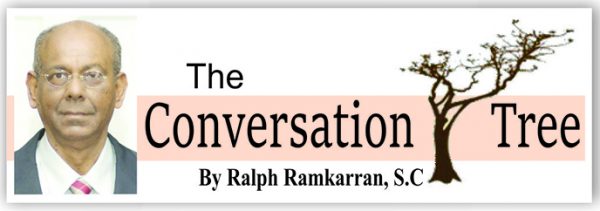
Form the moment in October 1992 that the PPP/C came to office, it was accused of election rigging and ethnic cleansing. It was alleged to have rigged the 1992 elections even though it had no control over the government or the elections administration. Its dismissal, or required resignation, of political appointees was deemed to be ethnic cleansing. The accusations of the PPP/C remotely rigging elections inside and outside the government, no matter how ridiculous, persists as tenaciously today as accusations of marginalization and discrimination against African Guyanese. These postures have generated a regular political diet of anti-Indian-Guyanese political violence since 1992. The allegedly 400 African Guyanese and the Shaka Blair killings in April 2002, also formed the retaliatory justification for the criminal terrorism between 2002 and 2008, with its mass slaughter of Indian Guyanese, including children, at Lusignan and Bartica, the reverberations of which are still being heard in our courts. The PNCR/APNU has never responded to the requests of its critics to point to the policies it implemented between 1964 and 1992 to enhance the economic power of African Guyanese, to expand their share in Guyana’s economic resources or the development of their entrepreneurial capacity.
The same questions were raised in relation to the 2015 – 2020 period, though much shorter. However, instead of demonstrating some effort in re-positioning Guyana’s economy in order to enable African Guyanese to benefit from market opportunities and entrepreneurial endeavours, President Granger advised in 2015 that Guyanese youth must exploit the opportunities offered by selling plantain chips, even though he later reneged after alarm was expressed at his economic philosophy.
But in reality, there was a dearth of Government sponsored policies for specific opportunities for African Guyanese in the 2015 – 2020 period as was from 1964 to 1992.
In the latter period the size of the privately-owned economy, where opportunities are found for entrepreneurship, shrunk for 100 percent to less than 20 percent. The PNC Government in this period saw African Guyanese development not in terms of the private sector, but in the state bureaucracy. The combination of historical circumstances, similar to the entire Caribbean, and specific policy choices during this period in Guyana, have conspired to confine African Guyanese to administration and to exclude them from business. Instead, the PPP/C Governments have borne the brunt of Opposition hostility for these circumstances, being accused of marginalization and discrimination, which in any event should be condemned wherever found. But in 2015 – 2020, instead of addressing the specific issues of African entrepreneurship and marginalization and discrimination, 200 new taxes (according to the PPP) were imposed, the treasury was emptied with profligate spending and foreign reserves dissipated, with nothing to show for these, as the economy floundered.
During the 2001 to 2010 period, the Opposition PNCR made absolutely no effort to make use of the opportunities offered by the constitutional reforms to engage in political work to benefit opposition politics. The Sectoral Committees of the Parliament have been virtually abandoned. Not a single Minister of Government, such as the Minister of Finance to answer questions about discriminatory allocation of resources, or the Minister of Housing to answer charges of discrimination in the distribution of house lots, or the Minister of Education to answer charges of discrimination in the distribution of scholarships, or the Minister of Social Services to answer charges of discrimination in services, has been summoned, or a public complaint made that the Opposition seeks to summon a particular Minister and is being obstructed by the Government. These, and other bodies, offered and continue to offer important opportunities for the Opposition. While they form some of the basic mechanisms of what can aid the development of inclusive governance, which is the official policy direction of the Leader of the Opposition, and which the US Government has called for, the Opposition appears to have consciously adopted a restrictive platform, based mainly on ethnicity.
Guyana’s opposition politics has now transitioned from ‘ethnic cleansing,’ to ‘discrimination and marginalisation’ to ‘apartheid.’ While the title of the conference proposing that Guyana is an ‘emerging apartheid state’ appeared to have been altered, a conference was held, as reported in Village Voice. The Opposition Leader is reported to have said that actual apartheid exists in Guyana, or words to that effect. This being so, in the coming period it should be expected that the accusation of ‘apartheid’ would take centre stage with the PNCR/APNU representing, not the interests of all Guyanese, or all labouring Guyanese, but the interests of African Guyanese oppressed by the surging apartheid policies by a PPP/C Government carrying rich and poor Indian Guyanese, the oppressors, because they support the PPP/C, into the land of ethnic plenty. Would I no longer be able to sit with Guyanese stalwarts, such as I did with the late, great, Rashleigh Jackson and colleagues for more than two decades in governments of both parties, to discuss Venezuela’s claim to two-thirds of Guyana, because I belong to the oppressor race, and he belongs to the oppressed race, in an apartheid state?
This column is reproduced with
permission from Ralph Ramkarran’s
blog, www.conversationtree.gy

